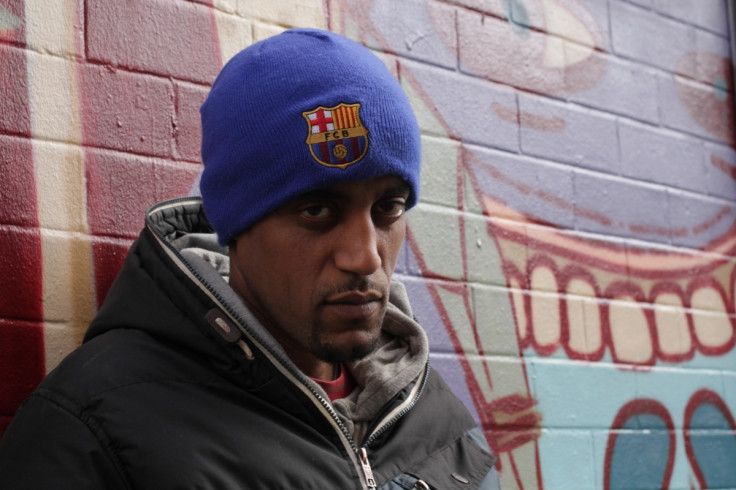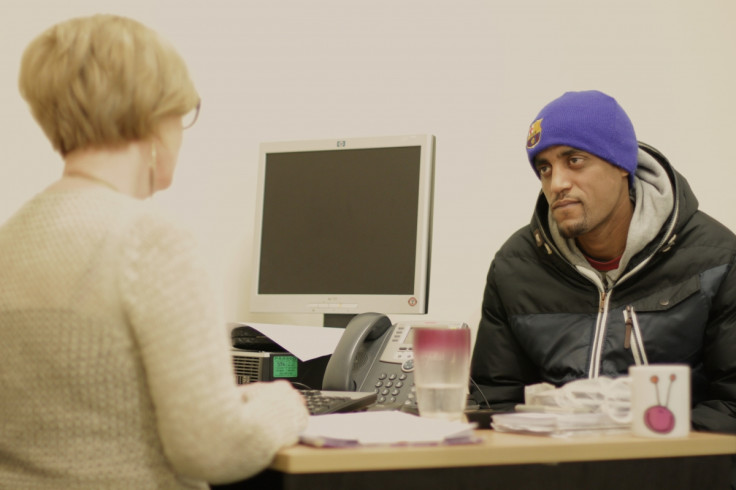Missing Nida Ul-Naseer: Desperation of Asylum Seekers Who Just Want to Learn
IBTimes UK investigates harsh reality of asylum system which leaves young people in limbo

On 28 December, 18-year-old Nida Ul-Naseer went missing from her home in Newport. An asylum seeker from Pakistan, she had wanted to attend university to become a marketing manager or a finance manager.
Her family said that she had become upset after finding out she could not continue with her higher education.
"She wanted to go to university. It was not a dispute - she just wanted to go to university," her sister Shamyla Ul-Naseer said.
"Because we are asylum seekers we are not allowed to go to university. She was angry about that. She was very sad. She was very angry about her future."
Sadly, Nida's case is not an anomaly. It is an issue facing thousands of young people in Britain. While asylum seekers are not directly banned from going to university, they are effectively shut out as a result of government regulations.
They are treated as international students and are therefore expected to pay fees ranging from £10,000 to £30,000 a year – an unaffordable figure for refugees fleeing their home country. Secondly, they are not entitled to government finance to help pay for their education, and are not allowed to work, giving them no hope of affording a university education.
Anthony's case

Anthony Worqw, 23, has lived in limbo for the last five years. He arrived in the UK at the age of 17 following a three-year journey across Europe from Sudan. Originally from Eritrea, his mother paid for him to be smuggled to Sudan when he was 10 so that he would not have to enlist in the army when he got to the age of 15. In Sudan, his uncle forced him to work in a coffee shop while his cousins went to school.
At 14, he decided to leave for a better life after news reached him that his mother had died. He travelled through Libya, Italy and France before eventually arriving in the UK, where he was put in initial accommodation by the Home Office. He enrolled in college to get the education he craved, but was thrown out when staff realised he was an asylum seeker.
Having done well enough to be offered a place at university, they've already demonstrated significant strength and commitment and overcome a huge range of barriers.
Staff told him he could resume his education once he gained refugee status. Five years later, he was told that his asylum claim and a further appeal had been refused and he was left homeless. He is now faced with two options – being homeless in the UK with no hope of a future, or returning to Eritrea, where he would be thrown into a prison camp for dodging conscription.
"I've been homeless since 1 February, 2013 until now," he said. "Nobody wants to see me. No-one follows my whereabouts, no-one knows where I am, no-one asks what I eat in a day.
"I was living on £35 a week from 2008 until February 2013. But then they told me my case was refused and they told me to leave the house. So I left the house.
"Now I live a rough life; sometimes I sleep in a bed, sometimes I sleep in the street. Sometimes I'm eating, sometimes I'm not eating, because I don't have any option. I didn't do any wrong thing.
"I don't have any family, I don't have a mum, I don't have a sister, I don't have anyone in this country. When I arrived here it gave me confidence, I thanked God. I wanted to come to this country and to go to school. Why? Because I want to learn. I want to go to school."
Harsh reality

While local authorities have a duty to provide primary and secondary-age asylum seekers with full-time education, this requirement ends once the child turns 17. There is some access to college courses, depending on the person's immigration status and the support they receive. However, university is off the cards.
Sophie Wickham, policy and information manager at Refugee Action, said the lack of options for young asylums seekers was a huge issue.
"Having done well enough to be offered a place at university, they've already demonstrated significant strength and commitment and overcome a huge range of barriers, including their education being disrupted because of having to flee persecution, navigating the immigration system in the UK, often having to learn a second language while studying for their entry qualifications, only then to be excluded from higher education," she said.
One day I went back to the school and the teacher said to me: Don't come back tomorrow.
"Children are left in limbo for years on end awaiting a Home Office decision. At Refugee Action we see the effect. Being prevented from working or learning means that you simply have nothing to do."
The Home Office aims to give families seeking asylum a decision on their application within six months. However, a recent Lords Select Committee report showed that there was a backlog of 32,600 cases. Some families wait for six or seven years for a final decision, once their appeals have been exhausted, said Wickham.
Asylum seekers are prohibited from working, but they can apply for permission to work if they have waited more than a year for an initial decision. Employment is strictly limited to the shortage occupation list, which includes classical ballet dancers and neurophysiologists.
Hopeless situation

Wickham said that Refugee Action was very limited in what it could do to help. "The regulations make it such that the vast number of children that we see will not be able to access university," she explained.
Article 26, a project run by the Helena Kennedy Foundation, looks to encourage universities to accept asylum seekers by providing tuition fee bursaries, a small grant and personal support. However, in order to be eligible, students must be able to sustain themselves financially during their degree programme, and the programme can only help a handful of students at a time.
"[We want to] appeal to higher education institutions to do everything they can to remove the barriers preventing access by exercising their discretion because they do have the option to offer fee waivers, or charge home fees and offer hardship support," Wickham said.
Anthony told IBTimes UK that he was learning English at Barnet College in north London – and had hoped to study computer sciences at a higher level – when he was told to leave the institution. "One day I went back to the school and the teacher said to me: 'You can't go to school. Don't come back tomorrow.'
"Now I don't do nothing. I don't have any qualifications, I don't have a job. I want to stay here [in the UK]. I want to have a good life. It's not good for me in Eritrea, I know that.
"It's been hard my whole life. I don't have any food, I don't have a life. I don't have any school, I don't have any work – I would like all these things.
"I want to go to school, I want to change my life. I want to go for walks in the park. I want a life."
© Copyright IBTimes 2025. All rights reserved.






















